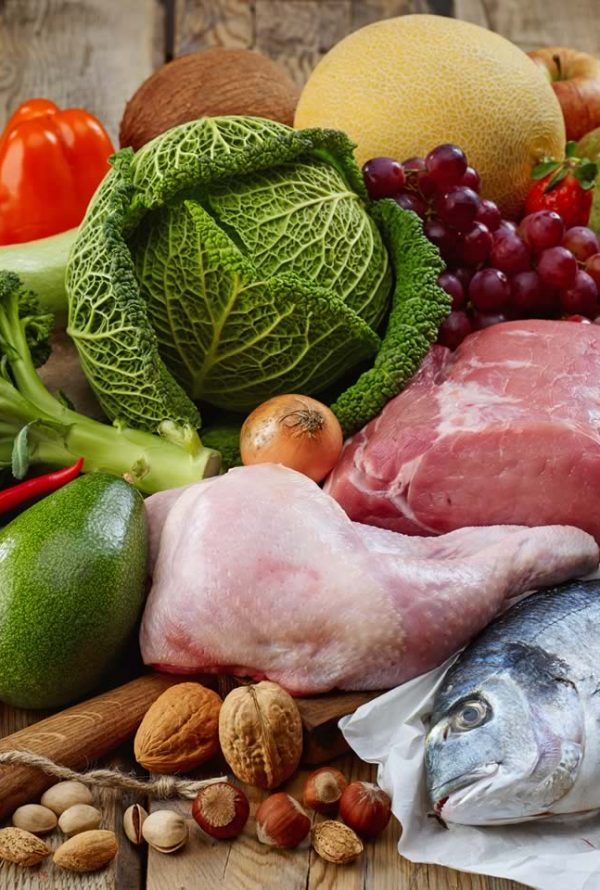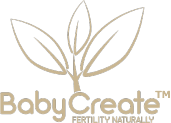
Best Pregnancy Diet for Improved Fertility!
15 Feb 2018
Healthy Sperm + Healthy Egg = Healthy Baby!
10 Apr 2018
An easy to follow dietary guide to help improve your fertility, get pregnant or to just be healthy.
As I’ve said before in my previous blogs, a good healthy diet is so important for both prospective parents when planning on getting pregnant and having a healthy baby.
There’s so much information out there about good and bad carbs, proteins and fats, that it can be extremely confusing for everyone, whether you are wanting to improve your fertility, get pregnant or just be healthy.
So I thought I’d set out an easily accessible, user-friendly guide to help get you on the right track in a relatively short time.
(i) Complex Carbohydrates / Good Carbs
What are Good Carbs?
Good carbs are naturally occurring, unprocessed complex carbohydrates i.e. all the same examples I’ve listed above regarding anti-inflammatory foods i.e. all vegetables, whole fruits (non-processed fruits), nuts, seeds and grains.
Is Fibre a good carb?
All complex carbohydrates contain so many nutrients and important vitamins as well as natural fibre.
Besides keeping us feeling full for longer, preventing constipation, and feeding those good bacteria in our gut, fibre also slows the rate of absorption of sugar in the bloodstream and hence prevents blood glucose levels from rising too fast.
Make sure you consume approximately 35g/day of fibre from vegetables.
We need to ensure our daily diet consists of 40-50% complex carbohydrates.
It is advisable to eat 5 portions of vegetables (raw and/or cooked) and 2 portions of fruit every single day – a portion is about ½ the size of a tennis ball.
It’s important to include those veggies that have a very strong colour (dark green and leafy, bright orange, yellow, red, purple, pink) – they are packed full of important vitamins, minerals and flavonoids, and are very good anti-oxidants, so they help with inflammation.
See: Good Carbs Cookbook – Murdoch Books 2017
What are Bad Carbs?
These ‘foods’ also known as simple carbohydrates, are all produced via some process or other, have no fibre and usually contain sugar and/or white flour.
Some examples include sugar, glucose, high fructose corn syrup, sucrose, fruit juice concentrates and white flour.
Besides being inflammatory, these ‘foods’ also interfere with the body’s natural glucose metabolism and are blamed for so many chronic conditions including diabetes, heart disease as well as gestational diabetes during pregnancy.
(ii) Good Quality Protein
Your (and your baby’s) body needs protein for growth, maintenance and energy.
It is used to build and repair tissues, make enzymes, hormones and many other body chemicals.
Protein is an essential building block of bones, muscles, blood, cartilage and skin.
In order for all these processes to occur, we need to ensure our daily diet consists of 10-30% protein. Try to make sure you eat a variety of different types of protein containing food at every meal.
Protein is found in:
- Meat – Pref. organic, grass-fed, hormone-free beef, lamb, pork, goat, chicken.
There is a higher antioxidant and omega 3 (good fat) content in grass fed versus grain fed animals. Because of this, they tend to be healthier and do not require antibiotics. - Fish – Fresh , ocean caught(not farmed) oily fish have the highest omega 3.
Be aware of the mercury content of some of the larger deep-sea fish. They are still good for you, just eat them in moderation.Sardines are the best choice as they have high omega 3 levels, the lowest mercury levels of all fish and their bones provide the best source of calcium. - Eggs – Preferably organic and always free range.
- Dairy – Preferably organic – milk, yoghurt, cheese.
- All vegetables – Have some protein content, especially beans, sprout and lentils.
- Grains – Especially spelt, kamut, amaranth, sorghum quinoa and millet.
- Nuts and Seeds – Hemp, pumpkin, sesame, sunflower and chia.
(iii) Good quality fats and oils
We all need to consume a certain amount of fat in our diet.
It provides and stores energy.
It helps with the absorption and distribution of fat soluble substances including hormones and nutrients e.g. vitamins A, D, E & K and certain antioxidants eg. lycopene, beta-carotene.
Good quality fat is also important for the structure of all your (and your baby’s) cells and for optimal nerve, brain and heart function.
In order for all these processes to occur, we need to ensure our daily diet consists of 20-30% fat.
What are Good fats?
‘Good’ fats are those that are high in essential fatty acids – omega 3 and omega 6.
Good/healthy fats keep your blood sugar stable.
They also help to increase your metabolism, increase your energy levels and decrease cravings – especially sugar and other simple (bad) carbohydrates.
For our overall health and wellbeing, and especially during pregnancy and lactation, it is extremely important to make sure we get a good amount of omega 3 fatty acids in our diet.
What food has the highest amount of Omega 3?
- Ocean fish caught in the wild (not farmed) eg. salmon, tuna, sardines, mackerel; herring, cod and snapper. (NB. Fish containing high levels of mercury should be avoided especially during pregnancy eg Shark, Swordfish, Barramundi, Gemfish and Orange Roughy).
- Pasture/grass-fed animals that have been raised on organic farms have a much higher concentration of omega 3 fatty acids than conventionally farmed animals.Vegetarian and vegans find it difficult to ensure they have enough omega 3 in their diet – consuming microalgae or flaxseed oil tends to improve these levels a little.
- Vegetable oils from whole organic nuts and seeds eg. olive, flaxseeds, walnuts, chia, coconut flesh, avocado flesh and sunflower seeds also contain varying amounts of essential fatty acids which are all really healthy in their raw state. It’s only when these oils are made into cooking oils through various extraction and heating processes that most of the health benefits are lost. And if they are then heated during cooking, they become denatured and are no longer considered ‘good fats’. Even though these oils don’t contain omega 3, they still provide the cells with essential fatty acids and are considered a good source of omega 6.
A variety of these good fats should be consumed on a daily basis especially before and during pregnancy.
What are Bad Fats?
‘Bad’ fats, otherwise known as trans fats are found in all processed foods.
They come from partially hydrogenated oils – oils that have been heated, put under pressure and have hydrogen added to change their structure in such a way that they are no longer healthy.
The reason manufacturers do this is because the process is supposed to ‘improve’ the taste, texture and shelf -life of the ‘food’ they are creating, as well as make the oil reusable for all their commercial enterprises.
These trans fats are known to contribute to increased oxidative stress and inflammation, and are associated with diabetes, cardiovascular disease, obesity, as well as all reproductive related inflammatory diseases.
What foods contain trans fats?
- Everything pre-packaged and processed – margarine, shortening, deep fried foods – yes, including veggie chips! non dairy creamers, ice-cream, sauces, gravies, cakes and biscuits, waffle and pancake mixes and microwave popcorn.
- Let’s not forget those culprits that have been dry-heat processed such as dry crackers, chips and cookies.
- And as I mentioned before – stay away from all genetically modified oils such as soy (up to 90% of soy crops globally are estimated to be GM), canola, cottonseed and corn.
- Last, but by no means least – processed meats, poultry, sausages, salami and wurst.
Having a DNA/Genomic test done prior to conception, can help you make the right choices for you individual genomic profile and predisposition. Many couples who come and see me take up this very helpful option I offer.
